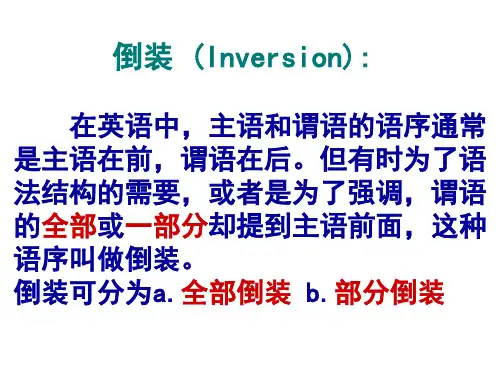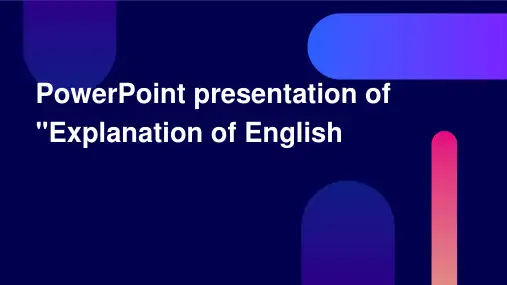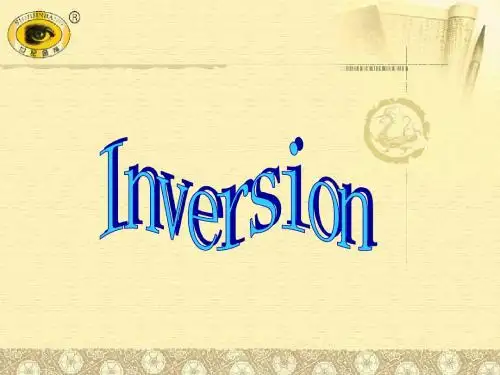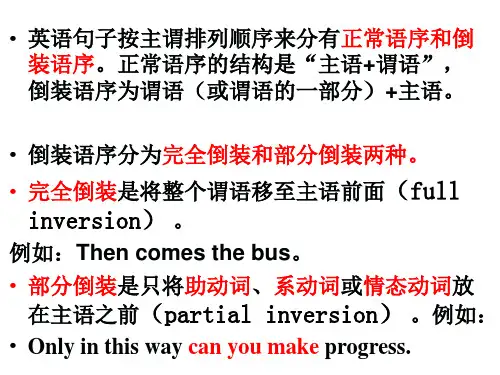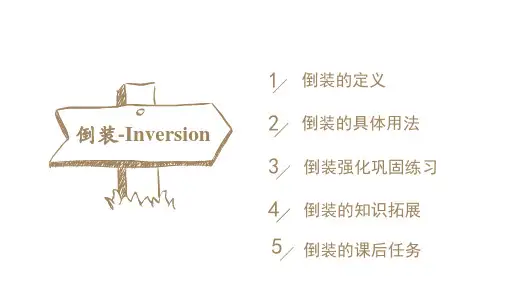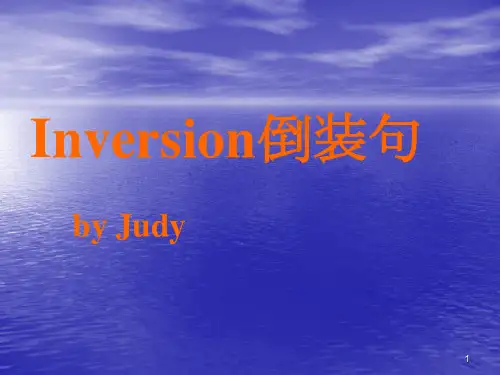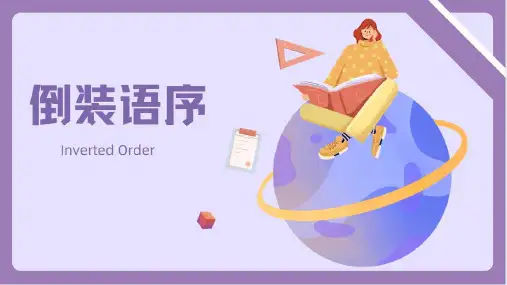1)Tom asked me to go to play football and so I did. 2) —It’s raining ha旳副词或连词置于句首,如hardly, rarely, seldom, scarcely, barely, never, not, few, little, neither, nor, not only, hardly…when, in no case, by no means, no sooner…than, many a time, often 等。 (部分倒装)
全部倒装
(谓语全部放在主语之前) 此构造一般只用于一般目前时和一般过去时
1.there be句型。 其中be动词有时可用exist, live, stand, lie, seem, appear, remain, happen 等词替代。(全部倒装)
1) There is an experienced teacher and many lovely students in the classroom.
2.(2023·陕西高考)No sooner _______ stepped on the stage than the audience broke into thunderous applause.
【高考链接】
1. (2023·辽宁高考)Not until he retired from teaching three years ago______ having a holiday abroad.
A. he had considered
B. had he considered
C. he considered
D. did he consider
【解析】选D。考察倒装句。句意:直到三年前他从教育行 业退休,他才考虑出国度假。Not until位于句首时,主句要用 部分倒装。故排除答案A和C。又因为题干中旳three years ago提醒要用一般过去时,故选D。
